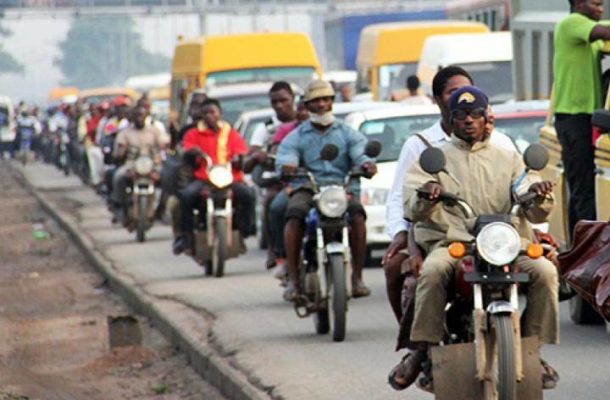The Ashanti Regional Security Council (REGSEC) has announced an immediate ban on motorcycle use after 7:00 p.m. throughout the region, following the fatal shooting of Alhaji Abdul-Malik Azenbge, the Chief of Kusaase.
In a statement issued Friday, the Ashanti Regional Security Council (REGSEC) announced the immediate prohibition of motorcycle travel after 7:00 p.m. across the region. The directive comes in the wake of the July 22 killing of Alhaji Abdul-Malik Azenbge, Chief of Kusaase, in Asewase—a development that has rocked local communities and raised concerns of potential retaliatory violence.
The restrictions were disclosed by Ashanti Regional Minister Dr. Frank Amoakohene, who said REGSEC convened an emergency meeting on July 23 to evaluate the security situation. “We are taking decisive steps to stabilize the region and prevent further unrest,” Dr. Amoakohene said.
In addition to the nighttime curfew on motorbikes, REGSEC has barred the use of unregistered motorcycles and those lacking functional lighting. Riders are also forbidden from wearing smocks—traditional garments that security officials say have increasingly been used to conceal weapons.
Security services, including police and military forces, have been deployed to areas identified as potential flashpoints. Authorities say they aim to deter reprisals and reinforce order in the aftermath of the chief’s death.
The regional government also suspended an ongoing intertribal football tournament, citing the risk of ethnic confrontations. Officials say the event will remain paused indefinitely as part of broader efforts to defuse tensions.
Dr. Amoakohene expressed condolences to the family of the late chief and emphasized the administration’s commitment to pursuing justice. “We recognize the gravity of this loss and assure residents that the perpetrators will be brought to book,” he said.
REGSEC has appealed for public cooperation as heightened security operations roll out, pledging to “ensure lasting peace and the safety of all residents in the Ashanti Region.”
The killing of Chief Azenbge has become a flashpoint in what analysts say is an increasingly fragile security climate in parts of northern and central Ghana, where intercommunal tensions, political grievances, and local chieftaincy disputes often intersect.
As the government moves to contain potential fallout, questions remain about long-term strategies to address the underlying causes of regional instability.













